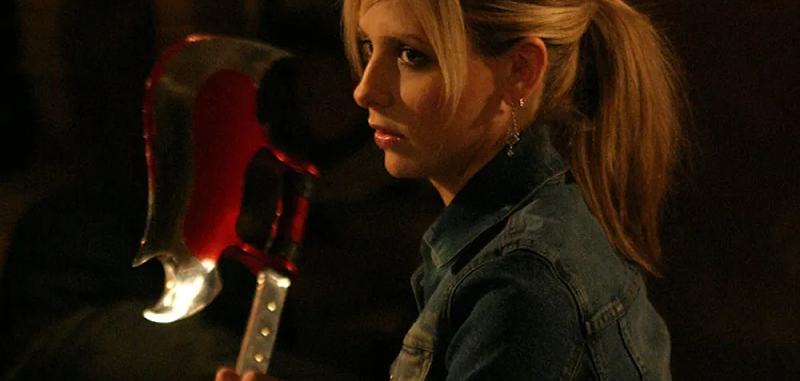Buffy is much more than a parade of entertaining camp. The show will often drop its facade of humour to explore complex themes including trauma, sexuality, and domestic violence, all of which feed into a coming-of-age metanarrative.
I cried, after watching the season two finale. And that wouldn’t be the last time.
It’s not all praiseworthy though, with a few major flaws evident in contemporary viewings.
Despite generally promoting feminist themes, Buffy at times seems incapable of recognising problematic behaviour in male characters, who are often rewarded for creepy and entitled acts. For example, a season two episode concludes with a male character’s ex being so flattered she gets back together with him because he cared enough to try and use magic to force her to date him again.
It also would be remiss of me not to mention that the show’s creator, Joss Whedon, has been accused of workplace harassment by what seems like every person he’s ever worked with, including the majority of Buffy’s main cast.
It’s been debated within the fandom how this affects modern viewings of the show. Personally, I still can’t help but love Buffy. It got me through my HSCs, made me laugh and cry countless times, and took over my identity for a few weeks in 2022.
I feel like most people my age aren’t familiar with Buffy, as it’s been a hot minute since it was topical. Which is a shame, as I genuinely believe it’s a masterpiece of a show.
Plus, modern pop culture owes Buffy a sizeable debt. The MCU’s quip-filled dialogue is a direct descendant of Buffyspeak. The serialised/episodic hybrid story structure used by shows such as Supernatural, modern Doctor Who, and Lost was popularised by Buffy. And you cannot convince me that Twilight, which came out two years after Buffy’s conclusion, wasn’t copying Whedon’s homework just a little.
If this sounds at all interesting, I’d encourage you to check Buffy out. And if not… well, maybe you could watch an episode or two ironically. That can be pretty fun too.
Marcus Pepperell is a first-year Media/Arts student from the South Coast. He loves overanalyzing media, writing fiction, and running tabletop role-playing games. Right now, he’s probably rewatching obscure shows or listening to pretentious rock bands. Possibly both.





